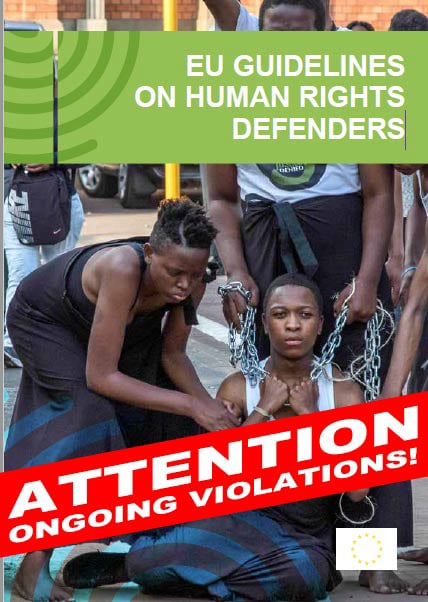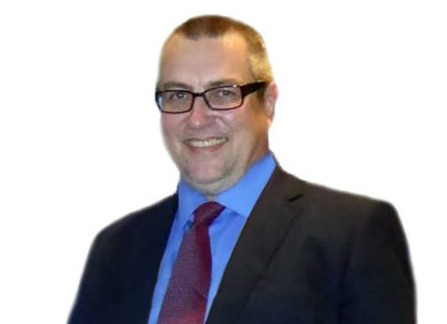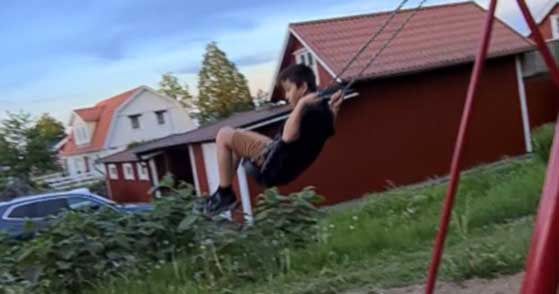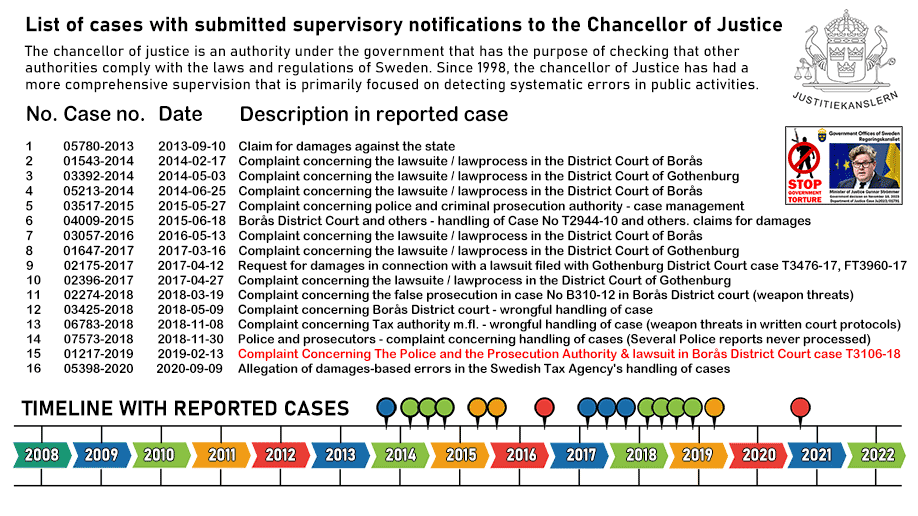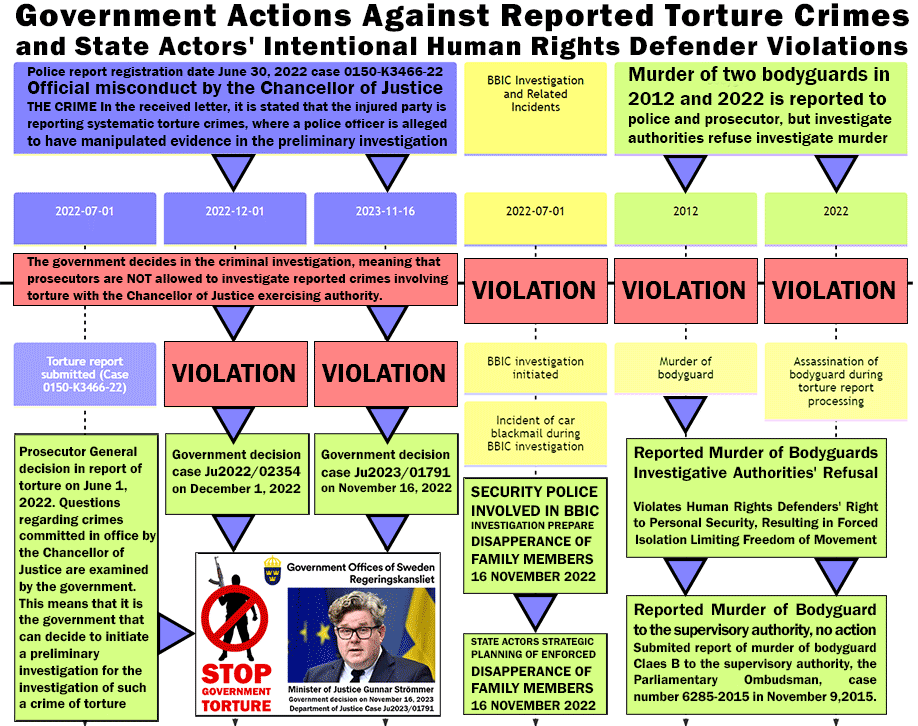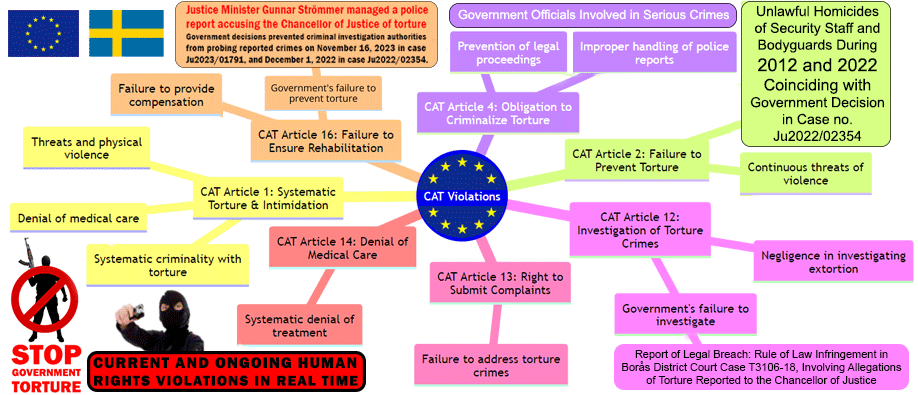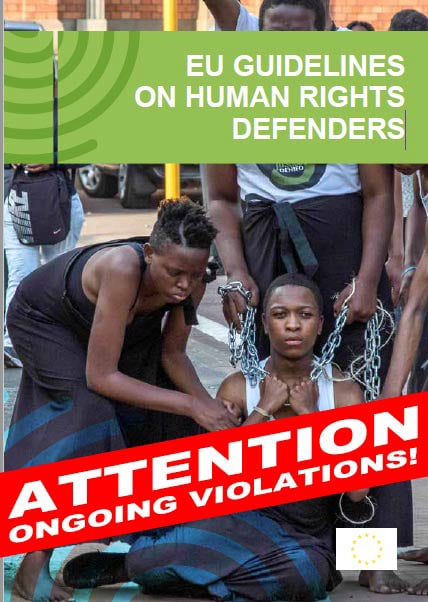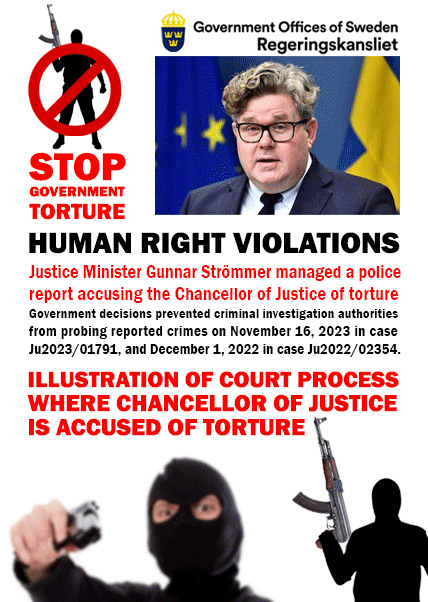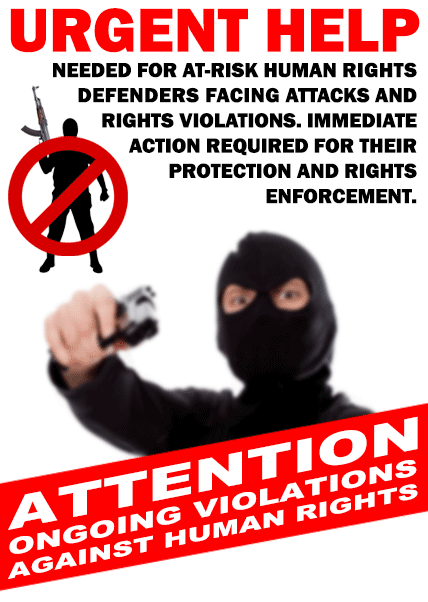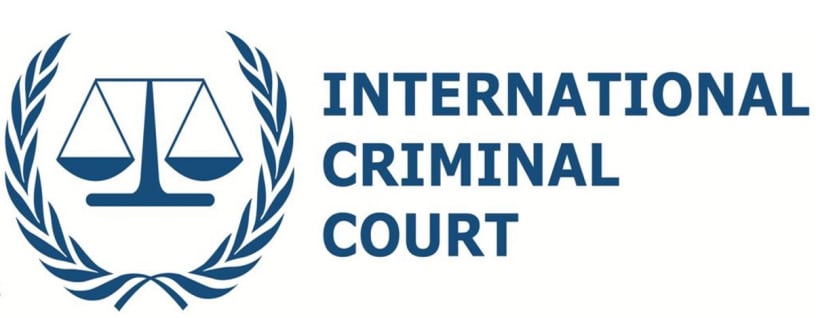Frequently asked questions (FAQ)
Humanhabit's efforts as Human Rights Defenders began when we posted material as a video blog on our YouTube channel in 2022. The retaliation was immediate, with the murder of bodyguards, assaults with knife attacks, extortion, and the enforced disappearance of family members ahead of Gunnar Strömmer's government decision on December 1, 2022. Urgent action is crucial to stop the ongoing violations against human rights defenders, as outlined in the EU Guidelines on Human Rights Defenders. This action involves reaching out to international organizations and Human Rights Fighters dedicated to helping and protecting human rights defenders whose fundamental rights are violated and who are in immediate or serious danger. Human rights defenders and organizations are encouraged to review our case and provide assistance to end the ongoing torture situation. Our contact details are provided below on the website. Please support our case to put an end to these violations of basic human rights!
The accuracy of the information presented on this website can be verified through the principle of public access in Sweden. Documents from the government offices in case Ju2022/02354 are public records and can be requested by the general public. On November 16, 2023, Government Decision in case Ju2023/01791 revisited the decision made on December 1, 2022. Court documents from Borås District Court case number T3106-18 are also public records and can be requested by the general public. These documents are compiled into PDF files which can be downloaded from this website as evidence for the claims presented. The Government Offices, specifically the Ministry of Justice, can be contacted for inquiries regarding of public documents, including case files and journal sheets, in case Ju2022/02354 and Ju2023/01791 via email at justitiedepartementet.registrator@regeringskansliet.se
If you wish to request a public document from the Parliamentary Administration's registry, please contact the registrar. For questions regarding the parliament's documents in case no. 2581-2022/23, contact the Parliament Information Service via e-mail at registrator.riksdagsforvaltningen@riksdagen.se
For inquiries regarding public documents, including the verdict, case appendices, and journal sheets from case number B310-12 or case number T3106-18, one can reach out to the Borås District Court via email at boras.tingsratt@dom.se
Borås District Court can be reached via the contact details provided on their website, via below link
https://www.domstol.se/boras-tingsratt/
The Government Offices of Sweden can be reached via the contact details provided on their website, via below link
https://www.regeringen.se/kontaktuppgifter/kontaktuppgifter-till-departementens-registratorer/
The Swedish Riksdag, parliament can be reached via the contact details provided on their website, via below link
https://www.riksdagen.se/en/contact-and-visit/contact-the-riksdag/
Contact details for the website's responsible publisher can be found at the bottom of the webpage. Journalists and human rights organizations are always warmly welcomed to contact me in either English or Swedish. It is crucial to bring international attention to the ongoing real-time torture in Sweden to ensure these heinous crimes are halted immediately.
Swedish Parliament's Committee on the Constitution to Probe Systematic Torture and Enforced Disappearance Allegations: Following the Justice Minister's Ju2022/02354 decision, a police report was filed. On July 27, 2023, for case AMR-3851-23, the Prosecutor General directed the Swedish Parliament's Committee on the Constitution to investigate allegations of torture and enforced disappearance against Justice Minister Gunnar Strömmer, under parliament case 2581-2022/23. This decision implies that only Swedish politicians at the government and parliamentary levels will handle the processing of murder victims and torture victims in criminal investigations, a procedure prohibited by the Swedish constitution. In Sweden, victims of torture, particularly entrepreneurs, find themselves ensnared in a web of criminal activities, with disturbing indications of the state's judicial system's complicity or negligence. Here's a detailed overview:
1. Collusion with Organized Crime: The judicial system of the state exhibits alarming signs of cooperation with prominent organized crime syndicates. Entrepreneurs, notably, bear the brunt of this unholy alliance, consistently facing systematic extortion. This intimidation often comes with the added threat of armed assault or robbery. In this specific instance, illicit gains and money laundering activities amount to over 25 million US dollars. Such substantial criminal proceeds risk funding terrorist operations, flagrantly violating international anti-money laundering statutes.
2. Prosecutorial Misdirection: Rather than addressing and prosecuting the evident acts of extortion, the state's machinery turns its focus on the victims, with entrepreneurs frequently being charged with accounting malpractices.
3. Threats During Legal Proceedings: Extortionists openly and continually threaten victims during the legal proceedings. These threats, often backed by automatic weapons, have been documented in official court records.
4. Violence in the Courtroom: The threats faced by victims are not just of a psychological nature. Direct physical attacks, especially knife assaults, have transpired during legal proceedings, placing victims in immediate danger. When the state was sued in case number T3106-18 in Borås District Court, written evidence was presented showing that state actors from the police authority and the prosecutor's office were directly involved in these legal abuses. Despite this compelling evidence, the Chancellor of Justice denied responsibility for the harm in the court.
5. Need for Private Security: Given the escalating threats, entrepreneurs have been compelled to hire bodyguards for personal protection. Tragically, these bodyguards are not only subjected to grave danger, suffering lifelong injuries from severe assaults, but in two cases, they have faced fatal consequences. Despite reports being filed regarding the murder of these bodyguards, investigative authorities have consistently refused to take action.
6. Police och Prosecutor Inaction: As the primary safeguard against such threats, the police and prosecutor have intentionally shown a deeply concerning reluctance or inability to investigate and counter this extensive criminal activity. These circumstances were substantiated with written evidence in case number T3106-18 at the Borås District Court. There, police and prosecutors seem to collaborate with gang criminals by manipulating criminal investigations, leading to legal abuses against victims in the judicial processes.
7. State Denial of Responsibility: When victims seek legal redress against the state for the blatant violation of their rights, the state, typically through the Chancellor of Justice, denies responsibility.
8. Extended Legal Battles: Victims and their families aren't only grappling with current threats. They've been embroiled in these harrowing legal battles for almost a decade, with the danger never far away.
9. Assaults Outside the Courtroom: The violence isn't restricted to courtrooms or public spaces. In one chilling instance, a torture victim's family faced a knife assault within the confines of their home.
10. Enforced Disappearance and Kidnapping of Family Members: The depth of the state's threats is profoundly alarming, often materializing as extortion maneuvers carefully coordinated with major governmental actions, especially in the lead-up to the government's resolution on December 1, 2022. In a grim twist, social services, reportedly with involvement from security police, have exploited this hostile climate by kidnapping family members on November 15, 2022. Specifically, children of individuals who have been victims of torture have been targeted in what appears to be a retaliatory measure stemming from torture victims filing reports with social services over concerns of their children being at risk of torture. It's unbearably painful to realize that young children, already victims of harassment and threats, have faced violence and intimidation within the very walls meant to protect them during their formative years. This forced disappearance means that children in these impacted families are robbed of the justice and therapeutic care they direly need to address the trauma and wounds inflicted by torture.
11. Threats to Legal Representatives: The intimidation doesn't stop with the primary victims. The state's antagonistic approach also encompasses the legal representatives of the victims. Several attorneys have withdrawn from proceedings, citing concerns over their personal safety. Given that the Swedish government seems to harbor a political agenda where threatening lawyers with weapons is tolerated, it becomes imperative to seek human rights lawyers beyond Sweden's borders.
In conclusion, this disturbing scenario paints a grim portrait of the rule of law in Sweden, with victims of torture being subjected to a relentless onslaught of threats, legal challenges, and physical violence. The state apparatus, which should ideally be a bulwark against such abuses, appears to be either complicit or negligently indifferent.
Direct Involvement of State Agents: The abduction was reportedly carried out by social services, which are state entities. Their involvement raises immediate concerns about the depth of government involvement or consent in this enforced disappearance.
Connection to High-Level Officials: Justice Minister Gunnar Strömmer, responsible for the government's decision on December 1, 2022, in case Ju2022/02354, and the subsequent reconsideration of this decision in case Ju2023/01791 on November 16, 2023. This decision process oversees the security police, which had interactions with the social services investigation concerning the enforced disappearance of Human Rights Fighters' family members as retaliation. This link between high-ranking government officials and the entities directly associated with the disappearance intensifies concerns about potential government complicity. Justice Minister Gunnar Strömmer's decision implies that torture crimes directed against the family won't be investigated by prosecutors, despite the Chancellor of Justice's involvement and authority in such torture offenses.
Strategic Timing: The close timing of the disappearance to a significant governmental decision on December 1, 2022, cannot be overlooked. It suggests a possible strategic move related to this decision, further implicating state involvement.
Retaliatory Motive: On July 1, 2022, the father relayed his anxieties to social services regarding the potential torture risks posed to his children. The children's ensuing disappearance is increasingly seen as a direct and intense backlash to his actions, further amplifying speculations of state involvement or acquiescence. This tension is heightened by an incident in which the family was strong-armed into surrendering a vehicle under violent threats in their home, an event that was duly reported to the police on August 31, 2022. Adding to the complexity, the Swedish Security Service is implicated through their establishment of two reports of concern in the social services' investigation documents, where the father is pinpointed as the issue. The approach of social services throughout their investigation raises eyebrows.
The caseworker found it peculiar that the father did not seek out the extortionist. It's distressing that social services expect the father to approach a reported extortionist in an investigation related to a child welfare concern, as this would not be in the best interest of the children. What's even more baffling is the absence of any official report of concern by social services, despite the children being direct witnesses to violent extortion threats in their home, an incident that stands as a violation of child protection laws in Sweden. Their later disappearance appears to be a direct and severe retaliation for his actions, further suggesting possible state involvement or complicity.
Lack of Transparency and Accountability: The refusal to disclose information about the mother and children's whereabouts or condition, combined with the denial or obfuscation of the disappearance, indicates state complicity or at least an unwillingness to pursue justice.
Systemic Threats: The broader climate of fear, combined with the specific threats and extortion tactics tied to governmental actions, suggests that this enforced disappearance is part of a larger pattern of state-sponsored or state-tolerated human rights violations.
Inadequate Police Response: The police's reported lack of action or hesitancy, especially given the severity of the crime, either indicates systemic inefficiency, lack of interest, or deliberate neglect, implicating the state's role further.
Conclusion:
The provided evidence paints a concerning picture of state involvement or consent in the disappearance of the mother and children. The direct links between high-level officials like Justice Minister Gunnar Strömmer and the entities involved in the disappearance warrant further scrutiny. Given the gravity of such accusations, an independent and comprehensive investigation, possibly with international oversight, would be necessary to ascertain the depth of government complicity and ensure accountability and justice.
The eradication of witnesses, particularly those who have undergone torture or have first-hand accounts of state-inflicted injustices, can be a strategic move for governments seeking to suppress evidence of their wrongdoing. Below are arguments to support the proposition that a government might have a vested interest in causing the enforced disappearance of such witnesses:
Erosion of Credible Evidence: Witnesses to torture, especially victims, are the most potent sources of credible evidence. Their firsthand accounts and physical scars can be compelling proof. Silencing them helps a government under scrutiny avoid the spotlight, thereby weakening the evidence against them.
Preventing International Sanctions: Countries that are signatories to international human rights treaties could face severe sanctions if found guilty of gross human rights violations. Getting rid of evidence and witnesses can be seen as a way to escape these repercussions.
Maintaining a Favorable Public Image: Reputation is everything. If tales of torture and abuse emerge, the public image of the ruling government can be seriously tainted, both nationally and internationally. By silencing witnesses, the government can control the narrative and maintain an image of stability and righteousness.
Deterrence for Other Potential Whistle blowers: The enforced disappearance of a few can send a clear message to many. It serves as a chilling deterrent for other potential whistle blowers or victims from coming forward with their stories.
Strengthening Autocratic Rule: Authoritarian governments thrive on fear. By making examples out of a few, they can instill fear in the masses, ensuring a subdued and compliant population, less likely to challenge the status quo.
Shielding Perpetrators: Removing witnesses ensures that those responsible for the torture, whether they are low-ranking officers or high-ranking officials, are shielded from investigations and potential prosecution.
The Nexus with the Enforced Disappearance of the Family:
Given the family's experience, their enforced disappearance can be perceived as more than a tragic coincidence. If they had been exposed to or bore witness to acts of torture, their sudden and inexplicable vanishing could be seen in the context of the government's broader strategy to eliminate damning evidence.
Conclusion:
Enforced disappearances, especially of witnesses or victims of torture, strike at the heart of justice, transparency, and accountability. The incidents described make a compelling case for an international criminal investigation into human rights abuses, suggesting the potential complicity of key government figures and agencies. The obstruction of inquiries into reported torture offenses by a government minister represents a grievous violation of both human rights and the overriding principles of international law, known as jus cogens norms. This act, in essence, normalizes the use of torture within Sweden. The emphasis on international standards and the invocation of "jus cogens" amplify the severity of the government's alleged actions and the paramount importance of upholding human rights. Given the magnitude of these accusations, it is paramount to emphasize the need for concrete evidence and a rigorous, unbiased investigation. Claims of a government's comprehensive involvement in such breaches demand solid proof to ensure their credibility and validity.
